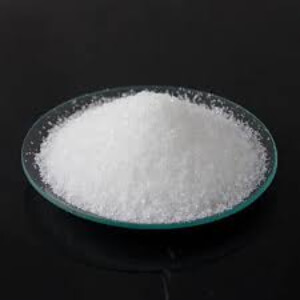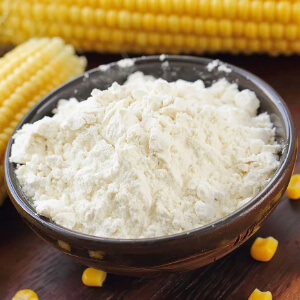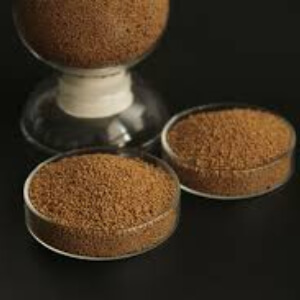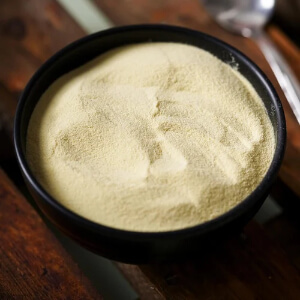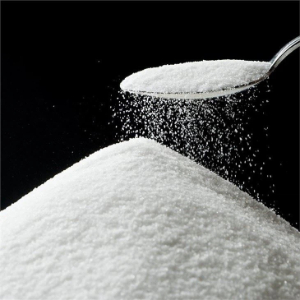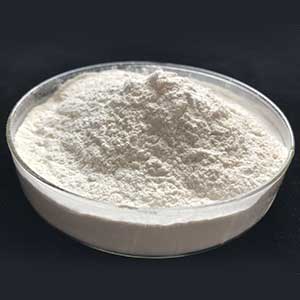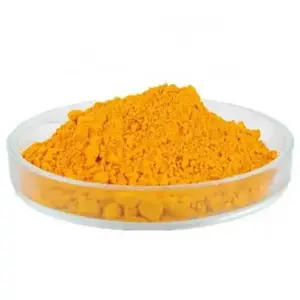
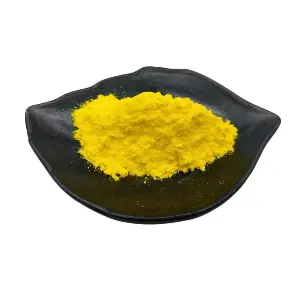
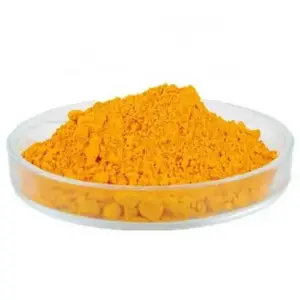
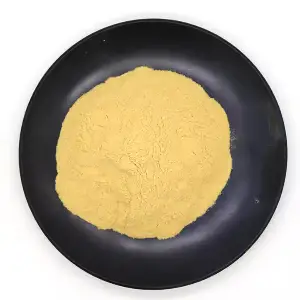
Folic Acid
Folic Acid (also known as Vitamin B9) is a water-soluble B vitamin that is crucial for various physiological functions in both humans and animals.
Chempora is a leading China supplier of Folic acid, We provide high quality Folic acid for customers, if you have any demands, please free contact with [email protected], we will reply you soon.
CAS No.: 59-30-3
Specification Available: Food grade
Introduction of Folic Acid
Folic Acid (also known as Vitamin B9) is a water-soluble B vitamin that is crucial for various physiological functions in both humans and animals. It plays an essential role in the synthesis of DNA, RNA, and proteins, and is involved in cell division and growth, making it particularly important during periods of rapid cell growth, such as pregnancy, infancy, and adolescence.
Key Characteristics:
Chemical Name: Pteroylglutamic acid (Folic Acid is the synthetic form of folate, the naturally occurring version).
Molecular Formula: C19H19N7O6
Common Forms: Powder, tablets, capsules, and liquid forms.
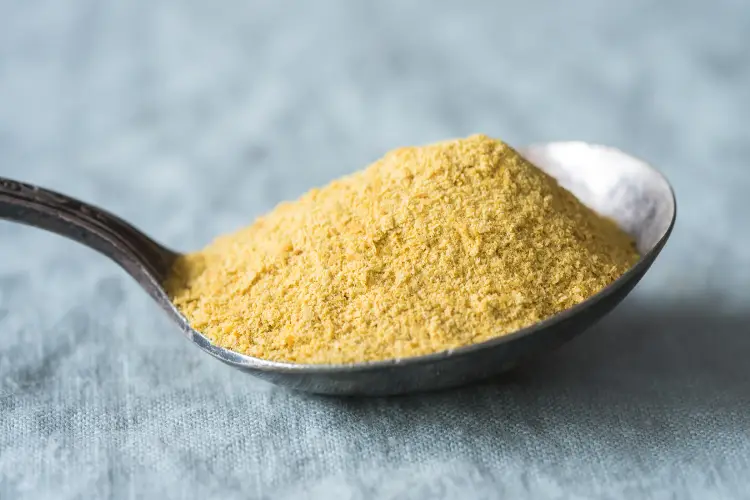
Advantages of Folic Acid
Folic acid (Vitamin B9) offers a range of health benefits, making it an essential nutrient for various bodily functions. Its advantages extend across different stages of life, with particular emphasis on pregnancy, cellular health, and overall well-being. Below are some of the key advantages of folic acid:
1. Supports Healthy Pregnancy
Prevention of Neural Tube Defects: One of the most well-known benefits of folic acid is its ability to prevent neural tube defects (NTDs) in developing fetuses. Adequate folic acid intake before conception and during the early stages of pregnancy significantly reduces the risk of birth defects such as spina bifida and anencephaly.
Fetal Development: Folic acid supports proper brain and spinal cord development in the fetus, which is critical during the first trimester when the neural tube forms.
2. Promotes Red Blood Cell Production
Prevention of Anemia: Folic acid plays a key role in the production and maturation of red blood cells. A deficiency in folic acid can lead to megaloblastic anemia, characterized by the production of abnormally large red blood cells that cannot effectively carry oxygen throughout the body.
Boosts Energy Levels: By supporting healthy red blood cell production, folic acid helps maintain energy levels and prevent fatigue often associated with anemia.
3. Cell Growth and Regeneration
DNA Synthesis: Folic acid is critical for the synthesis and repair of DNA and RNA, which is essential for cell division and growth. This is especially important during periods of rapid cell proliferation, such as in pregnancy, infancy, adolescence, and after injury or surgery.
Cellular Health: It helps maintain proper cell function and contributes to the health of tissues and organs throughout the body.
4. Heart Health
Reduces Homocysteine Levels: Folic acid helps lower homocysteine levels, an amino acid associated with an increased risk of heart disease. Elevated homocysteine can damage blood vessels and increase the likelihood of blood clots, leading to heart attacks and strokes.
Improves Circulatory Health: By maintaining healthy homocysteine levels, folic acid can help protect cardiovascular health and improve circulation.
5. Cognitive Function and Mental Health
Mood Regulation: Folic acid has been linked to mood regulation and may help alleviate symptoms of depression. Some studies suggest that folic acid supplementation can enhance the effectiveness of antidepressant medications.
Cognitive Health: Folic acid is vital for the maintenance of cognitive function. It has been shown to support brain health, particularly in older adults, by helping to prevent age-related cognitive decline.
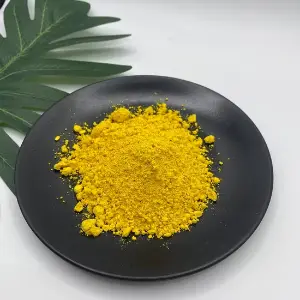
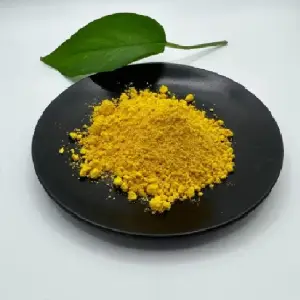
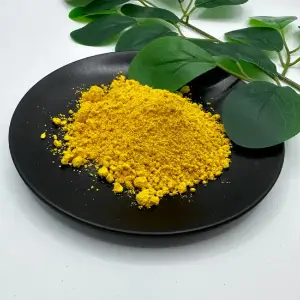
Application of Folic Acid
Folic acid, also known as Vitamin B9 or folate in its natural form, is essential for various biological functions, and its applications span several industries, particularly in health and nutrition. Below are some of its key applications:
1. Health and Nutrition
Prevention of Neural Tube Defects (NTDs): Folic acid is crucial for pregnant women, as it helps prevent neural tube defects in the developing fetus, such as spina bifida. It’s often recommended as a prenatal supplement.
Red Blood Cell Formation: Folic acid plays a vital role in the production and maturation of red blood cells, thus helping to prevent anemia.
Cardiovascular Health: It helps in lowering homocysteine levels, a risk factor for cardiovascular diseases. Some studies suggest that folic acid supplementation can support heart health.
DNA Synthesis and Repair: Folic acid is essential for DNA synthesis and repair, and it plays a role in cell division, making it important for growth and development.


2. Fortification of Foods
Food Fortification: Folic acid is commonly added to processed foods such as bread, cereals, rice, and pasta to help prevent folate deficiency in populations.
Supplements: It is widely used in dietary supplements to provide a convenient source of folate, especially for individuals with dietary restrictions, malabsorption issues, or those planning pregnancy.
3. Pharmaceuticals
Medical Supplements: Folic acid is used in prescription and over-the-counter supplements to treat or prevent folate deficiency, anemia, and certain types of birth defects.
Cancer Therapy Support: Some cancer treatments deplete folate levels in the body, so folic acid may be prescribed to mitigate this effect, though its use should be monitored carefully in chemotherapy.
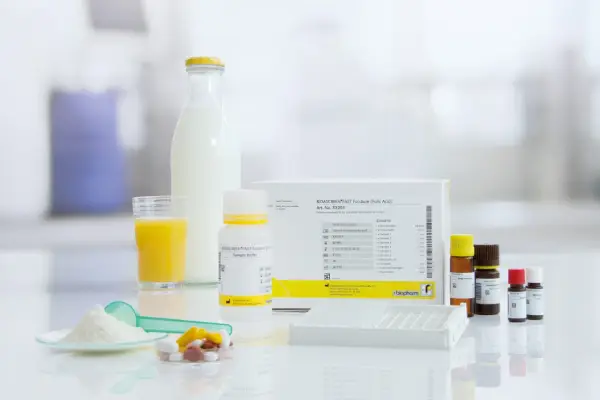

4. Cosmetics and Skin Care
Skin Health: Some studies suggest that folic acid can support skin health by promoting cell turnover and regeneration. It is sometimes included in skincare formulations aimed at reducing wrinkles and improving overall skin appearance.
Anti-Aging Products: Folic acid is being researched for its potential role in anti-aging treatments due to its cellular repair properties.
5. Animal Feed
Animal Nutrition: Folic acid is added to animal feeds to improve the growth and health of livestock. It is essential for animals, especially for pregnant and lactating animals, to prevent deficiencies that could affect growth or reproductive performance.
6. Agriculture
Plant Growth: Folic acid (as folate) has been explored in some agricultural practices to boost the growth of certain plants and improve yield, though this application is less common than its uses in human nutrition and health.

Folic acid’s broad range of applications makes it a vital nutrient in both health and industrial sectors.
Production Process of Folic Acid
Folic acid/ vitamin B9, is produced through a multi-step synthetic process, typically starting with the chemical synthesis of pteridine, para-aminobenzoic acid (PABA), and glutamic acid. Here’s a brief outline of the production process:
Synthesis of Pteridine and PABA: Pteridine (a heterocyclic compound) and PABA (a precursor) are synthesized through chemical reactions.
Coupling Reaction: Pteridine and PABA undergo a coupling reaction, typically involving a catalytic process, to form dihydropteridine.
Addition of Glutamic Acid: Glutamic acid is then added to the dihydropteridine derivative in a process called conjugation, resulting in a folic acid intermediate.
Oxidation: The intermediate undergoes oxidation to form the final active compound—folic acid.
Purification: The crude folic acid product is purified using various methods like recrystallization to ensure high purity.
Final Formulation: The purified folic acid is then dried, processed into powder, and often encapsulated or made into tablets for various pharmaceutical or nutritional uses.
This process ensures high-quality folic acid suitable for supplements and fortification in foods.

Product Parameter of Folic Acid
| ITEMS | SPECIFICATION |
|---|---|
| Appearance | Yellow or orange crystalline powder |
| Assay (Dry basis) | 97.0% ~ 102.0% |
| Ultraviolet Absorption | A256/A365 = 2.80 ~ 3.0 |
| Related Compounds | 2.0% Max |
| Water | 8.5% Max |
| Residue on Ignition | 0.3% Max |
| Total Plate Count | 1000 cfu/g Max |
| Molds and Yeast | 100 cfu/g Max |
| E. coli | Negative |
| Salmonella | Negative |
| Conclusion | Comply with the USP43 specification. |
| Storage | Store in cool & dry place, keep away from strong light and heat. |
Why Choose Folic Acidr Provided by Chempora?
Choosing folic acid from Chempora offers several advantages:
1. High Quality and Purity: Chempora ensures that its folic acid is produced under strict quality control standards, guaranteeing high purity and safety.
2. Reliable Supply Chain: As a global partner, Chempora offers consistent and reliable supply, ensuring that you receive top-quality folic acid without disruptions.
3.Competitive Pricing: By sourcing directly from trusted manufacturers, Chempora can offer competitive prices, helping businesses maintain cost-efficiency.
4. Tailored Solutions: Chempora provides customized solutions to meet specific needs, whether for supplements, food fortification, or other applications.
5. Certifications: With a focus on quality, Chempora’s products meet international standards and certifications, ensuring they are safe and effective for use in various industries.
By choosing Chempora, you get a trusted partner with a commitment to delivering high-quality folic acid for diverse applications.
Contact Us
CHEMPORA CO., LIMITED
More Product Recommendations
Chempora is a professional supplier of nutritional supplements, food additives, and feed additives. In addition to providing you with Vitamin C / Ascorbic Acid Powder, we can also provide you with other food additives. We look forward to your message.

